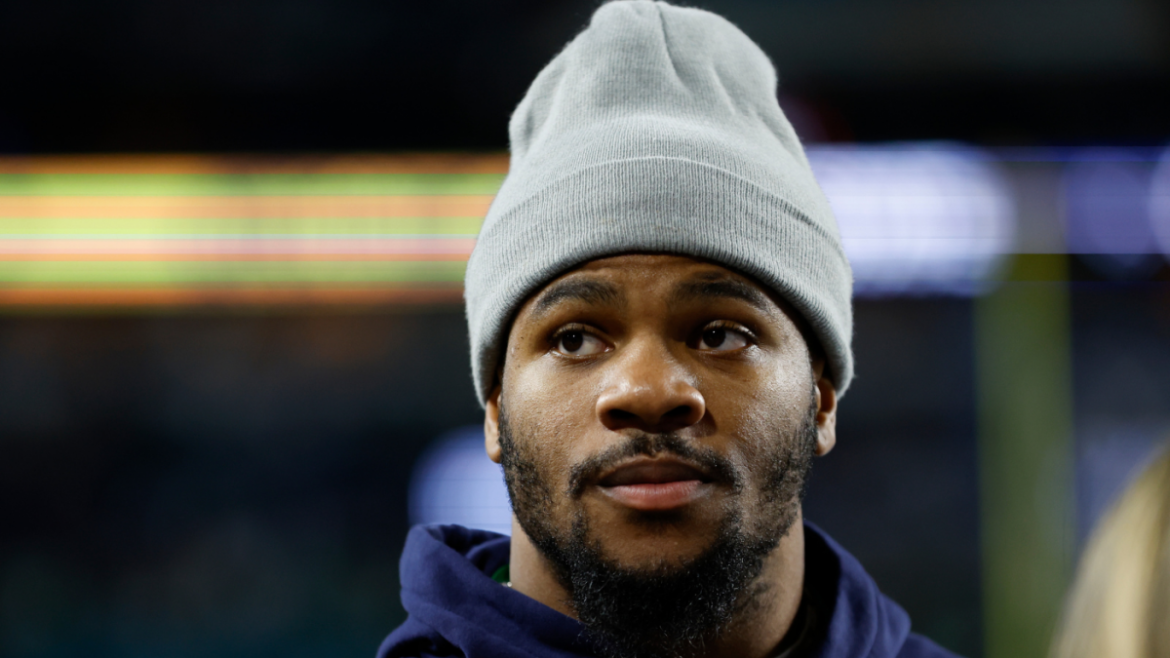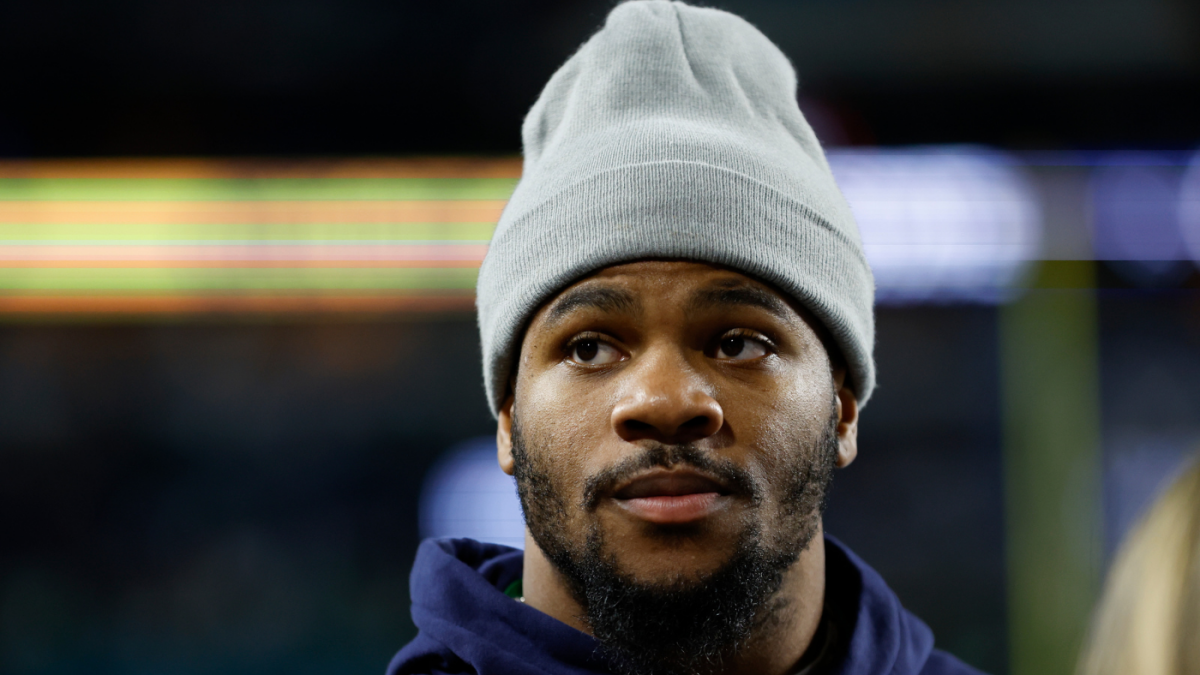Micah Parsons and the Dallas Cowboys: Navigating Contract Talks Amid Commitment to Team Success
Micah Parsons, one of the NFL’s brightest defensive stars and a cornerstone for the Dallas Cowboys, stands at a pivotal juncture in his career. As contract negotiations unfold with his current deal nearing its end, Parsons’ actions and public statements reveal a complex, multifaceted approach to balancing personal interests and professional dedication. This analysis unpacks the details surrounding Parsons’ contract situation, his engagement with team activities, the perspectives of team management and analysts, and the broader implications for the Cowboys’ future.
The Contract Negotiation Landscape
Recent reports indicate that while progress has been made between Parsons and the Cowboys in contract talks, with owner Jerry Jones citing multiple hours of discussions, no finalized deal has been reached. Both sides reportedly agree on the majority of terms, but a few sticking points remain unresolved. This stalemate has prompted a degree of concern among fans and commentators, given Parsons’ status as a defensive lynchpin whose future with the team is crucial.
Contract discussions have somewhat slowed as the team approaches mandatory minicamp. According to statements by the Cowboys’ executive leadership, there has been little movement immediately prior to the minicamp period, adding a layer of uncertainty concerning the timing of an extension. Despite these delays, medical and performance evaluations suggest Parsons remains highly valued for his skill set and leadership qualities.
Parsons’ Commitment Amid Contract Ambiguity
Strikingly, Parsons has consistently demonstrated his commitment to the team regardless of his contractual status. He has publicly affirmed his intention to attend the upcoming mandatory minicamp, emphasizing his tradition of participation, having never missed a minicamp in four years. Parsons’ social media posts convey a readiness not only to prepare physically but also mentally, by engaging with teammates and playbooks—even as negotiations linger.
This behavior sets Parsons apart from some high-profile holdouts seen elsewhere in the league. His decision to show up for voluntary workouts earlier and confirm attendance at minicamp communicates professionalism and loyalty, underscoring his primary focus on winning a Super Bowl rather than allowing contract disputes to interfere with on-field preparation.
Team Management and Coaching Perspectives
Coach Brian Schottenheimer and other Cowboys’ personnel have expressed expectations that Parsons will be at minicamp despite the absence of a finalized contract. Schottenheimer’s comments suggest confidence in Parsons’ return, emphasizing the importance of his presence for team cohesion and defensive scheming. Moreover, while the possibility of fines exists if Parsons were to skip mandatory activities without a contract, the Cowboys appear inclined to take a flexible approach, focusing on long-term relationship management.
Jerry Jones, the team owner, has been directly involved in the negotiation process, dedicating considerable personal time to meet with Parsons. This signals the franchise’s recognition of Parsons’ integral role and a willingness to reach a mutually beneficial agreement. Nevertheless, Jones’ public remarks also illustrate the complexities of balancing the team’s salary cap and championship aspirations.
Analyst and Fan Reactions
NFL analysts widely agree that the Cowboys cannot afford to let Parsons walk, given his impact on both defense and team identity. Some critiques focus on Jones’ handling of contracts, drawing parallels to past negotiations that resulted in holdouts or public friction with marquee players. Observers note that delays in finalizing Parsons’ deal could risk creating distractions or setting unhealthy precedents within the locker room.
Fans remain watchful but largely supportive, applauding Parsons’ professional approach. Discussions on social media reflect a mixture of anticipation for a blockbuster contract and respect for Parsons’ dedication. The prospect of a record-setting deal looms large, with speculation placing the figure near or even beyond $200 million.
Potential Scenarios for Training Camp and Beyond
Looking ahead, Parsons has indicated that his attendance at the Cowboys’ training camp hinges on whether a new contract is secured by then. While he plans to be present at minicamp irrespective of an extension, there is acknowledgment that unresolved negotiations by the time training camp arrives may prompt different considerations.
This potential conditional attendance introduces an important strategic dimension to negotiations. It preserves Parsons’ leverage but also signals ongoing commitment, avoiding an outright holdout scenario common in contract disputes. His stance reflects calculated pragmatism—balancing pressure on the franchise with a professional approach that values team success.
Broader Implications for the Cowboys’ Franchise
Parsons’ contract situation is emblematic of a broader theme facing the Cowboys—a need to retain and compensate top talent while managing financial frameworks and team culture. Alongside Parsons, key players such as quarterback Dak Prescott and wide receiver CeeDee Lamb are also in focus for contract extensions, collectively shaping the franchise’s trajectory.
Successfully securing Parsons long term would solidify the defensive core and maintain continuity crucial to championship aspirations. Conversely, protracted disputes risk impacting morale and on-field performance. How the organization navigates this juncture will reverberate throughout the league, serving as a case study of modern contract dynamics in professional sports.
Conclusion: Balancing Star Power and Team Loyalty
Micah Parsons’ contract negotiations with the Dallas Cowboys highlight a delicate balancing act between individual ambition and collective goals. His choice to attend minicamp amid ongoing talks sends a powerful message of dedication, maturity, and professionalism. Meanwhile, the Cowboys’ engagement with Parsons—led by Jerry Jones and coaching staff—reflects an awareness of his indispensable value and the need for prudent negotiation.
The evolving situation encapsulates the realities of managing elite talent within the business of football: the interplay of negotiation leverage, timing, team strategy, and personal commitment. As the NFL progresses toward the 2025 season, all eyes remain on this important dialogue, with hopes that a resolution will forge a path toward mutual success—both on the contract front and the pursuit of Super Bowl glory.





